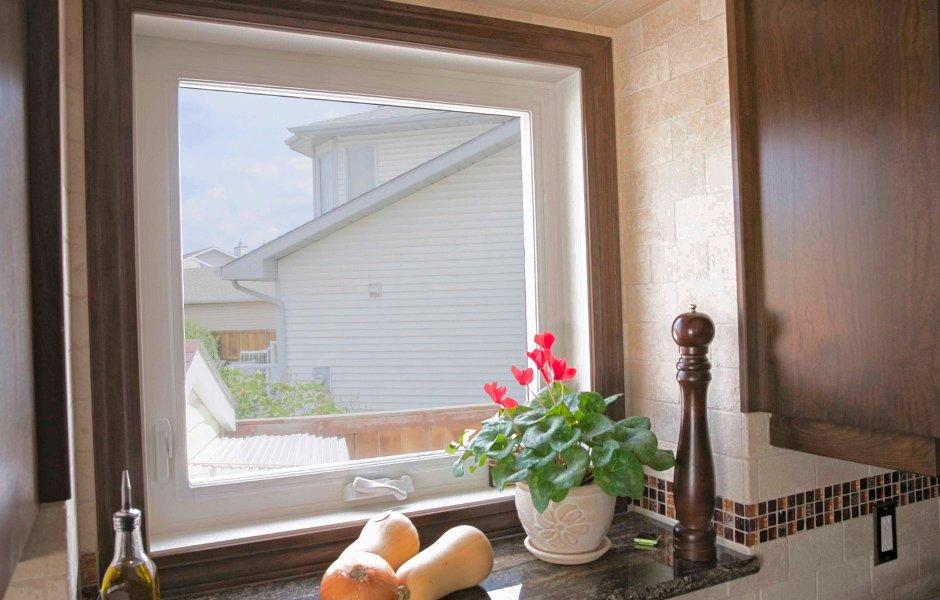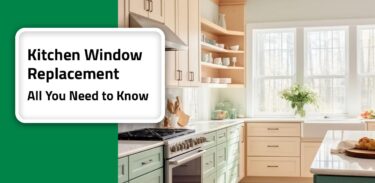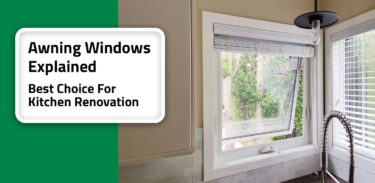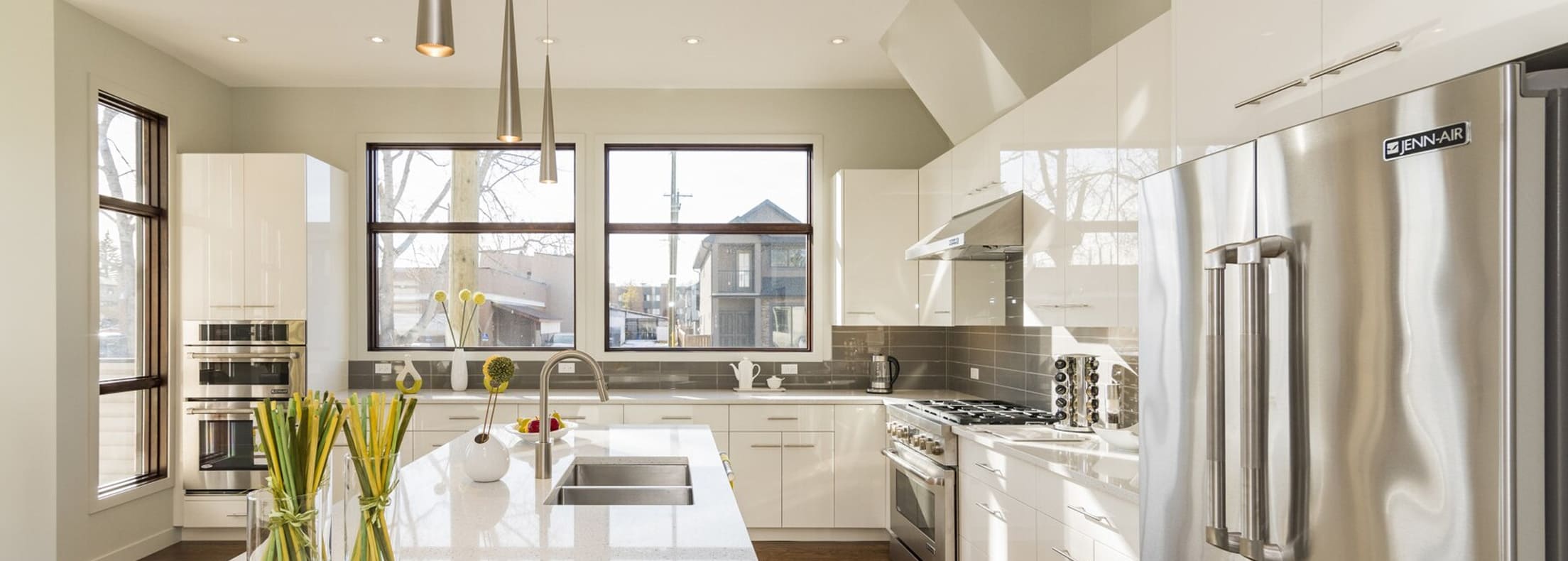

Best Windows For Kitchens: Awning vs. Slider vs. Hung?
Sep 23, 2024
Sep 26, 2024
6 min read
760
When planning a replacement project, kitchen windows can often require more consideration than windows in other rooms. There are certain things you want your kitchen windows to do.
- Firstly, you want to be able to open your kitchen windows throughout the year, regardless of the weather or conditions outside. Kitchens generally contain a lot more moisture than other rooms, not to mention the smells from last night’s dinner. Being able to open your window even for a couple of minutes throughout the year, can help bring the humidity levels down and reduce condensation on the glass.
- Secondly, you want these windows to be accessible and easy to operate. You don’t want to be stuck reaching over the sink every time you want to open or close them.
- And thirdly, because your kitchen is generally a high-traffic area, you want kitchen windows to let in as much light as possible, so you don’t have to rely on lighting when you don’t have to.
So, which kitchen window styles are best for all the mentioned above purposes? Let’s find out!
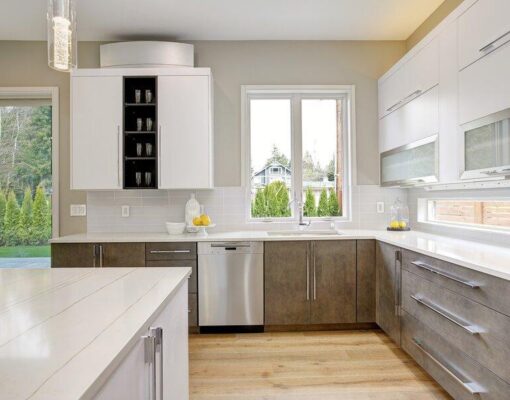
Shopping for New Kitchen Windows?
Awning Kitchen Windows
The biggest advantage of this type of window over others is the fact that they can be opened essentially in any weather. Because the bottom of the pane tilts away from the house, you can enjoy fresh air flow even in rain or snow.
The fold-down turn handle also makes these windows easy to operate, meaning you won’t have to lean over the sink every time you need to open and close them. Awning windows also maximise the amount of light and don’t obstruct the view like sliding windows do.
Awning windows are the most efficient, and easiest to operate when used in a kitchen. A big advantage of awning windows is that they can stay open even during rain.
Awning vs casement windows for kitchen
Awning and casement windows both fall under the category of crank-operated windows, offering a blend of functionality and aesthetic appeal for various rooms in a home. However, despite their similarities, awning windows are more frequently found in kitchens, while casement windows are commonly installed in living rooms and bedrooms.
This distinction arises from their design and operational features tailored to the specific needs of each room. Awning windows, hinged at the top, allow for ventilation even during rain, making them ideal for kitchens with moisture and varying temperatures. Their ability to provide airflow without letting in water is particularly beneficial in a room where both cooking and cleanliness are paramount.
On the other hand, casement windows, with hinges at the side, offer wider openings for airflow, making them suitable for living areas and bedrooms where maximising fresh air and ease of egress are vital.
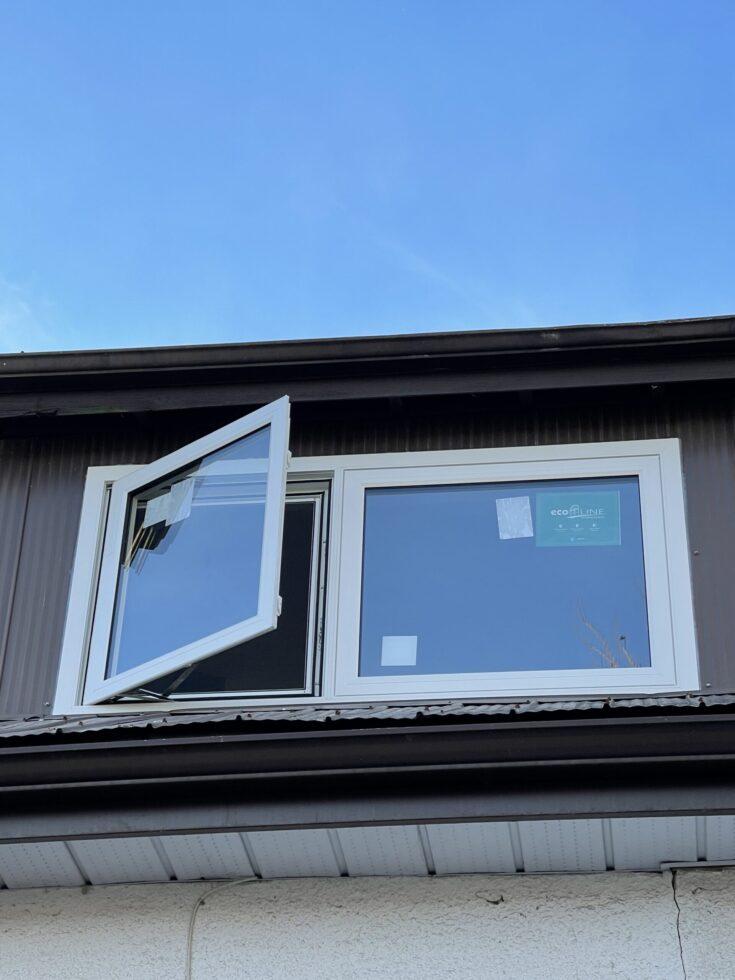
Slider Kitchen Windows
When considering modern kitchen window ideas your lay-out, look of the home, or even personal plans for the replacement project may call for a different window in the kitchen.
That’s where slider windows come in handy as another popular choice when it comes to ensuring good air flow to your cooking areas. Easily gliding from side to side, they are usually considered as perfect kitchen windows that don’t block countertops. These models also come standard with drainage channels to ensure no water ends up sitting of freezing on the window.
Slider windows are a more basic budget option. You can still get energy efficient sliders for a lower price than awnings.
Kitchen slider windows pros and cons
Pros:
- Maximize Space: Slider windows do not open outward or inward, making them ideal for kitchen areas where space is in high demand, such as above sinks or countertops.
- Ease of Use: These windows are easy to operate with a simple slide, making them accessible for all ages and abilities, especially in hard-to-reach areas of the kitchen.
Cons:
- Limited Ventilation: Since only half of the window can be open at a time, slider windows may offer less ventilation than windows that fully open, such as casement or awning windows.
- Cleaning and Maintenance: Slider windows can accumulate dirt and debris in their tracks, making them slightly more challenging to clean and maintain over time.

Shopping for New Sliding Windows?
Hung Kitchen Windows
Hung kitchen windows, encompassing single-hung and double-hung options, offer versatile design options for any kitchen, especially when considering placement over the sink or within small kitchen layouts.
- Single-hung windows, with a fixed upper sash and a movable lower sash, provide a classic look while facilitating airflow and natural light with minimal space usage. This makes them an excellent choice for tight kitchen spaces where functionality and aesthetics are key.
- Double-hung windows for kitchens elevate this functionality by allowing both the upper and lower sashes to move, increasing ventilation options and making cleaning a breeze—a convenient feature for windows positioned over the sink. Their ability to open from the top or bottom offers flexible ventilation, helping to control airflow and reduce condensation, a shared kitchen concern.
Single and double-hung windows present a practical solution for small kitchen window design options. They not only maximise the available wall space but also blend seamlessly with various kitchen styles, from traditional to contemporary, ensuring that design and utility go hand in hand.
F.A.Q
What kitchen windows offer maximum ventilation?
Awning windows are the top choice for maximum kitchen ventilation due to their design and functionality. These models are hinged at the top and can be left open even during rain, providing continuous airflow. Additionally, double-hung windows with both operable sashes also offer the flexibility to control airflow, making them an excellent option for enhancing kitchen ventilation.
What are the best easy-to-clean kitchen windows?
Easy-to-clean windows are a must for maintaining cleanliness at your kitchen. Double-hung windows are an excellent choice for kitchens, especially when installed over the sink, as both sashes tilt in, allowing for easy cleaning of both the interior and exterior surfaces from inside your home.






